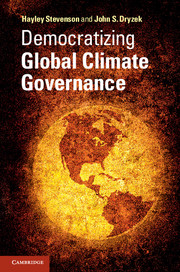Perhaps the most significant consequence of neoliberalism’s
capture of public higher education is its reduction of everything to finance
and money. And much of that narrowed focus is on relatively short-term returns.
This narrowing of purpose and emphasis has affected many of the functions of
universities. One of the more obvious is in the category of investments.
Most universities have a growing pool of money called an
endowment from which they take the interest earned to support programs of the
institution. This is a good thing. But if an investor seeks only the highest
possible short-term return on the investment without examining what those
invested dollars are supporting in the world, they might well be undermining
the society, the environment, or some other concern central to the mission of
the institution.
Unfortunately, most public universities have been turning a
blind eye to these investments other than to scrutinize the quarterly or annual
financial report. Recently many institutional investors have come to recognize
that aligning their investments with their mission can not only maintain their
financial bottom line but also simultaneously support their mission to build a
better world. This movement began earnestly during the Vietnam War when
religious organizations wanted to make sure they were not profiting from firms
manufacturing weapons. Following that we saw a global response to the harm of
apartheid, with many investors divesting of stocks of firms profiting from business
in South Africa. Michigan State University was the first public university to
divest its holdings from firms profiting in South Africa.
In early 2005, then-UN Secretary General Kofi Annan invited
a group of the world’s largest institutional investors to join a process to
develop the Principles for Responsible Investment. A 20-person Investor
Group drawn from institutions in 12 countries was supported by a 70-person
group of experts from the investment industry, intergovernmental organizations
and civil society. The Principles were
launched in April 2006 at the New York Stock Exchange. To date, there are more
than 1,400 institutional signatories with more than $40 trillion in assets
under management. Sadly, the higher education sector is almost entirely absent.
Investments and
Climate Change
There is a growing global consensus that climate change is
becoming the human
family’s most significant challenge, coupled with poverty and income
inequality. The scientific community (International Panel on Climate Change,
National Academy of Sciences, Royal Academy of Sciences, etc.) is
overwhelmingly convinced that the threat is man-made and that the burning of
fossil fuels is a prime cause. You might think, given this consensus, that
institutions would not only be looking to reduce their own carbon footprint but
also choosing to avoid profiting from an activity that is deemed detrimental to
the human family.
That logic is behind the recent and growing movement for divestment from fossil
fuel companies. But this logic has been all but lost on those who look at
investments as simply building their financial wealth. More recently the
concern with fossil fuel stocks as being largely based on assets that might be
stranded (unsellable) because of their harm is causing even those who look at
investments through the narrow lens of financial profit to jettison some of
their fossil fuel holdings.
While I support divestment from fossil fuels for those very
reasons, what is needed in higher education is not simply the phased divestment
from this perilous industry but a transformation of how we think about
investments and how we align our missions to those investment choices. Principles
for Responsible Investment are a good starting place for all
institutional investors. The six principles are quite basic:
Principle
1: We will incorporate ESG [environmental, social, governance] issues into investment
analysis and decision-making processes.
Principle
2: We will be active owners and incorporate ESG issues into our ownership
policies and practices.
Principle
3: We will seek appropriate disclosure on ESG issues by the entities in which
we invest.
Principle
4: We will promote acceptance and implementation of the Principles within the
investment industry.
Principle
5: We will work together to enhance our effectiveness in implementing the
Principles.
Principle
6: We will each report on our activities and progress towards implementing the
Principles.
As Pax World Fund’s President and CEO, Joe Keefe, noted
recently,
The flimsy rebuttal we sometimes hear, that
an endowment's fiduciary duty means that its only obligation is to maximize
return, regardless of the consequences or externalities, is utter nonsense.
There is now a substantial body of research underscoring that companies with
better environmental performance also tend to enjoy better financial
performance. It is ignoring these issues, rather than integrating them,
which most likely constitutes a breach of fiduciary duty [emphasis added].
Reinvesting for
Our Common Future
Good investment practices should not simply be limited to
avoiding perilous investments (like fossil fuels) but should include positive choices.
For a public university like Michigan State University, which has been built up
over more than 150 years largely by the people of the state of Michigan, one
should expect that enterprises and communities that are based here, that
provide quality products, services and livelihoods and are good neighbors in
our communities, should receive a sizable portion of such investments. This is made
all the more important given that 76 percent of our students are from Michigan
families whose tax support helps make all the university does possible.
Investments in those communities make them stronger and more prosperous and
strengthens the tax base that supports much that we count as the public good,
including schools, libraries, museums, infrastructure, etc. Public state universities should commit to a minimum percentage of this endowment going towards state and local investments that help sustain the communities they are reliant on for their students and tax support.
Public universities could therefore, at a minimum, endorse
and follow the Principles of Responsible
Investment. They could establish a committee representing the faculty,
staff, and students that oversees the investments and insures they align with
the mission of the institution. This would include making recommendations on
how the university, as a shareholder, should vote on shareholder resolutions.
The current practice nearly always defaults uncritically to supporting the
management position on these resolutions. Given the incredible increases in CEO
salaries, golden parachutes, and other management acts of self aggrandizement
that have become so prevalent, the management of the firms we invest in should
not receive our uncritical support. We have a responsibility as shareholders to
see that our dollars are being used appropriately and in accordance with our
mission.
A bit different approach is using some of the endowment money to create a "Green Revolving Fund" which could be used to invest in campus energy conservation, efficiency, and renewable energy projects where the return on investment (ROI), often in saved dollars, aligns well with financial investments. The savings are then plugged back into the fund to re-invest in more energy saving, carbon reducing projects. The recent cost decreases in photovoltaics (PV) can now see ROI's of 10-15 percent per year. Those are only the financial benefits. When coupled with the benefits of carbon reduction on the environment, and potential increase in local jobs, the triple bottom line makes these kinds of investments even more attractive
In Democratic
Imperatives: Innovations in Rights, Participation, and Economic Citizenship, a 2011 task force report from the
American Political Science Association that looked at strengthening democratic
practices, one of the key recommendations was the implementation of
participatory budgeting. I believe there is an adaptive possibility of that public
budgeting process to shape the investment direction for a public entity like
MSU. Just today I received an email from a colleague in California announcing
that several of the recommendations I have offered in this brief paper have
been agreed to by the University
of California system,
which has an endowment of more than $90 billion. Those recommendations came
from a task force created by the president that was representative of the
university community. That email also included the announcement of two new
sustainability investor positions with the University of California to ensure
the recommendations are put effectively into place!
We can only hope that MSU and other universities will soon
establish a broadly represented task force like the University of California
did this year to develop their own response to climate change, sustainability
and investments. Time is a-wasting.









